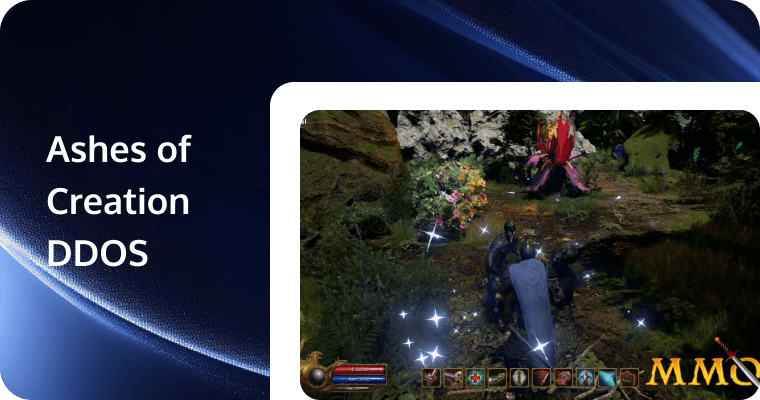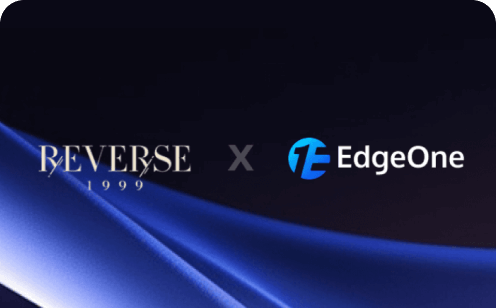Ashes of Creation: Navigating DDOS Attacks in the World of MMORPGs

In the ever-evolving landscape of massively multiplayer online role-playing games (MMORPGs), few titles have generated as much anticipation as Ashes of Creation. Developed by Intrepid Studios, this ambitious project promises to revolutionize the genre with its dynamic world and player-driven content. However, like many online games, Ashes of Creation has faced its share of challenges, including the looming threat of Distributed Denial of Service (DDOS) attacks. This article delves into the impact of DDOS attacks on Ashes of Creation and the broader MMORPG industry, exploring the nature of these attacks, their consequences, and the measures taken to combat them.
The Rise of Ashes of Creation
Ashes of Creation has been in development for several years, with its community eagerly awaiting each milestone. The game's Alpha Two phase, which began on October 25, 2024, marked a significant step forward in its development journey. This phase, free from non-disclosure agreements (NDAs), allowed testers to stream and share their gameplay experiences, generating unprecedented excitement among fans and potential players alike.
The Alpha Two testing phase was designed to occur in multiple stages, with Phase I lasting from October 25 to December 20, 2024. This testing period was crucial for Intrepid Studios to gather feedback, identify issues, and refine the game's systems before its eventual full release. The removal of the NDA for this phase demonstrated the developers' confidence in their product and their commitment to transparency with their community.
The DDOS Attack Incident
Recently, the login portal of Ashes of Creation suffered a DDoS attack, with attackers sending over 250 million requests to Ashes of Creation every five minutes.
This incident highlights the vulnerability of online games, especially during crucial testing phases when stability and performance are under intense scrutiny. DDOS attacks can be particularly damaging during these periods, as they not only disrupt the gaming experience but also hinder the development team's ability to gather accurate data and feedback.
Understanding DDOS Attacks
To comprehend the impact of such attacks on Ashes of Creation and other MMORPGs, it's essential to understand what DDOS attacks are and how they operate. A Distributed Denial of Service attack is a malicious attempt to disrupt the normal traffic of a targeted server, service, or network by overwhelming it with a flood of internet traffic from multiple sources.
In the context of online games, DDOS attacks typically target game servers or login servers, rendering them inaccessible to legitimate players. This can result in server crashes, login failures, severe lag, or complete service outages. For a game like Ashes of Creation, which promises a seamless and immersive world, such disruptions can be particularly detrimental to the player experience and the game's reputation.
The Motivation Behind DDOS Attacks
DDOS attacks on online games can be motivated by various factors:
1. Competitive advantage: Some players may attempt to disrupt servers to gain an unfair advantage in competitive gameplay.
2. Extortion: Attackers might demand ransom from game developers to stop the attacks.
3. Revenge: Disgruntled players or ex-employees might launch attacks out of spite.
4. Testing and showcasing skills: Some hackers perform DDOS attacks to demonstrate their abilities or test a game's security measures.
5. Ideological reasons: Hacktivists might target games or companies they disagree with ideologically.
In the case of Ashes of Creation, the motivation behind the reported DDOS attack remains unclear. However, given the game's high profile and the critical nature of its Alpha Two phase, it's possible that the attackers sought to disrupt the testing process or gain attention within the gaming community.
The Impact on Ashes of Creation and Its Community
The DDOS attack on Ashes of Creation during its Alpha Two phase likely had several immediate and long-term consequences:
1. Disrupted testing: The attack interfered with the crucial weekend testing period, potentially delaying the collection of valuable player feedback and data.
2. Frustrated players: Testers who were eager to experience the game found themselves unable to access the servers, leading to disappointment and frustration within the community.
3. Negative publicity: News of the DDOS attack could have generated negative press for the game, potentially impacting its reputation among potential players.
4. Increased development costs: Addressing the attack and implementing additional security measures likely incurred additional costs for Intrepid Studios.
5. Delayed development: Time spent combating the DDOS attack and reinforcing security infrastructure could have delayed other aspects of the game's development.
Despite these challenges, the Ashes of Creation development team appears to have responded promptly to the situation. As mentioned in one of the search results, "Le développeur se dit à pied d'œuvre pour déployer des contre-mesures," which translates to "The developer says they are working hard to deploy countermeasures."
DDOS Attacks in the MMORPG Landscape
Ashes of Creation is far from the only MMORPG to face DDOS attacks. Many popular online games have experienced similar incidents over the years. For example:
1. World of Warcraft: Blizzard Entertainment's flagship MMORPG has been the target of numerous DDOS attacks, particularly during expansion launches and major content updates.
2. Final Fantasy XIV: Square Enix's popular MMORPG has faced DDOS attacks that have caused login issues and server instability.
3. Guild Wars 2: ArenaNet's MMORPG has experienced DDOS attacks that have disrupted gameplay and caused server outages.
4. EVE Online: CCP Games' space-based MMORPG has been subjected to DDOS attacks that have affected its single-shard universe.
These incidents demonstrate that DDOS attacks are a persistent threat in the MMORPG industry, affecting games of all sizes and stages of development.
The Rising Trend of DDOS Attacks
According to the search results, a report from F5 Labs indicates a significant increase in DDOS attacks in 2023 compared to 2022. This trend suggests that online games and services are facing an escalating threat landscape. The rise in hacktivism, particularly in a tense global climate, has contributed to this increase in DDOS attacks.
For games like Ashes of Creation, which are still in development, this trend underscores the importance of robust security measures and preparedness for potential attacks. As the game progresses through its testing phases and moves towards full release, the development team must remain vigilant and adaptive to evolving security threats.
Combating DDOS Attacks: Strategies and Countermeasures
To protect against DDOS attacks and mitigate their impact, game developers and publishers employ various strategies:
1. Traffic filtering: Implementing sophisticated traffic filtering systems to distinguish between legitimate player traffic and malicious attack traffic.
2. Content Delivery Networks (CDNs): Utilizing CDNs to distribute traffic across multiple servers, making it harder for attackers to overwhelm a single point of failure.
3. Cloud-based protection: Leveraging cloud services that specialize in DDOS mitigation to absorb and filter out attack traffic before it reaches the game servers.
4. Network infrastructure upgrades: Investing in robust network infrastructure capable of handling large volumes of traffic.
5. Real-time monitoring: Implementing advanced monitoring systems to detect and respond to attacks quickly.
6. Player education: Educating the player base about security best practices to prevent their systems from being used in botnet attacks.
7. Collaboration with ISPs: Working closely with Internet Service Providers to identify and block malicious traffic at the network level.
For Ashes of Creation, the DDOS attack during Alpha Two likely prompted a reevaluation and strengthening of their security measures. The development team's swift response to deploy countermeasures demonstrates their commitment to protecting the game and its community from future attacks.
Tencent EdgeOne's Advantages in DDoS Protection
Tencent EdgeOne offers comprehensive DDoS protection with several key advantages:
Outstanding bandwidth capabilities: EdgeOne has more than 3,200 edge nodes in over 70 countries and regions, with a total reserve of 200+ Tbps bandwidth resources. This enables EdgeOne to effectively absorb and disperse large-scale DDoS attacks.
Self-developed AI intelligent recognition algorithm: EdgeOne uses the most advanced self-developed AI intelligent recognition algorithm, which can detect and mitigate most DDoS attacks within an average of 3 seconds, with a 99.995% attack mitigation efficiency. This high efficiency ensures that e-commerce websites can quickly recover normal operation when facing complex attacks.
Anycast-based distributed defense architecture: EdgeOne adopts an Anycast-based distributed defense architecture, sinking security protection capabilities to edge nodes, achieving near-source cleaning, and dispersing attack traffic to nearby global nodes on the ISP side, providing over 15 Tbps of protection capabilities. This distributed approach greatly improves the protection effect and reduces the pressure of single-point protection.
Flexible pricing strategy: Traditional DDoS protection solutions usually result in additional bills due to a surge in traffic. However, EdgeOne adopts a clean traffic billing method, avoiding unexpected cost increases and helping businesses better manage their budgets.
One-stop platform: EdgeOne not only provides DDoS protection but also combines acceleration features, forming a one-stop platform solution to comprehensively address the network performance and security challenges of internet businesses. Compared to other single-point combination solutions, EdgeOne has a higher cost-performance ratio and lower management costs.
Rapid Response and Continuous Adaptation
Tencent EdgeOne's DDoS protection measures can respond almost instantaneously to threats, helping maintain server stability even during high-intensity attacks. Furthermore, by constantly updating defense strategies and adapting to new attack vectors, EdgeOne ensures evolving threats are met with equally advanced protective measures.

